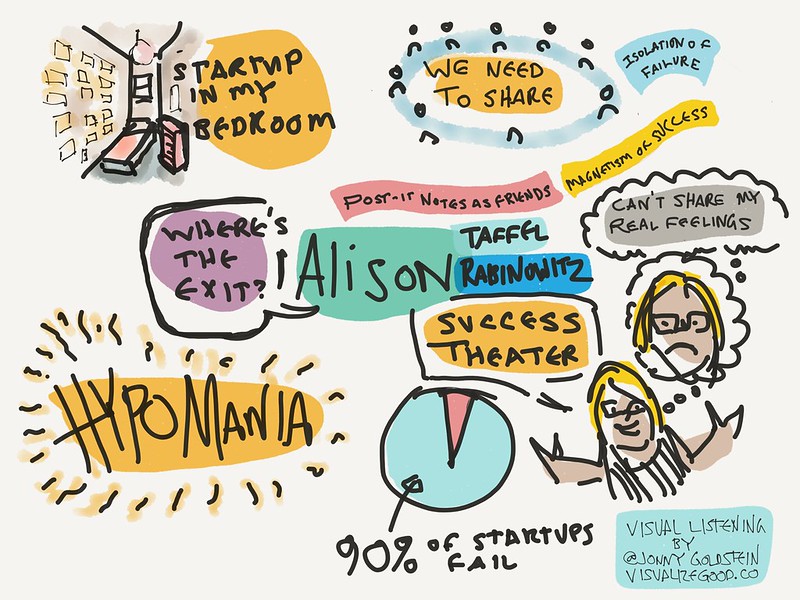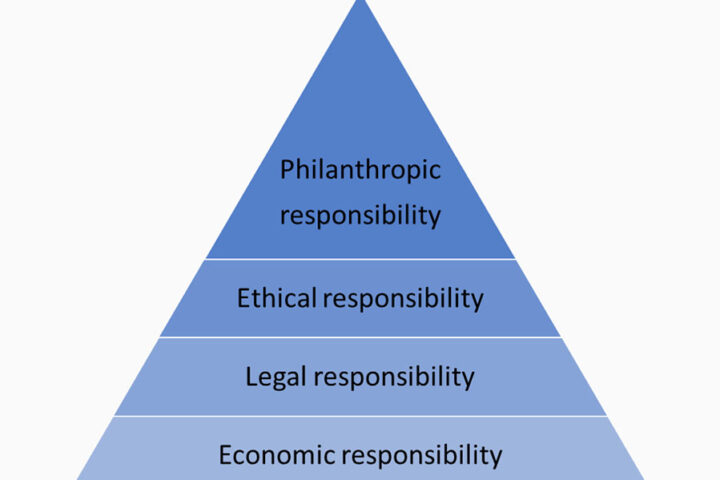Source: Flickr_image _ jonny goldstein _ Flickr
If you are thinking of starting a business, you have to be prepared for failure as well. You have to understand that while it can be a rewarding venture, it is a very challenging task as well. So, whenever you come across a success story in this field, there are very good chances that it had went through a fair share of failures on the way as well. And there are many that don’t even come into the spotlight.
Every one of these failures is not without value; they teach something invaluable to the people who go through them. For established as well as budding entrepreneurs, these lessons provide them an opportunity to learn what can go wrong and how they can steer clear of such mistakes in their business’s future. Here are five things you need to keep in mind.
Market Fit is Everything
One of the most common reasons why a business can fail is a poor product-market fit. In such cases, the entrepreneurs launch products or services which they believe are revolutionary but usually don’t have any real market demand. As a result, the products make big entrances in the market but fail to stay there for long.
- Anki is a robotics company which was able to raise 200 million dollars in funding and was quite successful initially because of their Cozmo robot companion and Overdrive racing game. The company had to shut down in 2019 because their product was misaligned with the demands of the market and weren’t able to make a good business plan for it.
- ScaleFactor was an accounting and financial planning company which raised over 100 million US dollars and still, had to lay off their staff by 2020. They had a very good marketing strategy but it couldn’t make up for its misgivings.
Scaling too quickly
Climbing up the stairs of development and expansion is a good thing but being too fast about it can prove to be disastrous. Scaling your business too quickly can make it difficult to keep up with fulfilling demands for money and other resources. It can surely lead to failure.
A few examples include that of:
- WeWork, which was established in 2010 by Adam Neumann and Miguel McKelvey with the purpose of redefining office spaces into more flexible places for the community. The company expanded a bit too quickly and soon soared to 47 billion dollars in 2019. This gave rise to flaws to the foundation of their business models and hence, led to their downfall.
- Zenefits was found in 2013 and was involved in the cloud-based HR software business. They raised over 580 million dollars and reached a valuation of 4.5 billion US dollars. But they also made the mistake of scaling their business too quickly and their hypergrowth proved to be dangerous.
The Importance of Adaptability
The market and its trends keep on changing and evolving according to the demands of the target audience. If a business model/strategy fails to keep up with these demands, their products go out of favor very soon. They don’t get bought and soon, the business also fails to stay in the market.
The following companies have suffered because of their inability to evolve according to the market:
- BlackBerry was a tech giant and dominated the mobile phone market in the early 2000s because of their innovative and trademark physical keyboards. But the one thing they did wrong was that they didn’t embrace touchscreen technology as well and as quickly as their competitors when it was introduced in the 2010s.
- Kodak was immensely successful in the photography industry for over a century and supplied cameras and film rolls globally. However, the brand didn’t take the time to adapt to the digital photography revolution and despite having the resources to do so, didn’t develop digital cameras and other components. By the time they had done so, Sony and Canon had already dominated the scene.
- MySpace also lost out on becoming a popular social media platform because it didn’t do what its competitors like Facebook did; it didn’t introduce features like photo tagging and video uploading.
Cash Flow Management
Capital is very important and it’s lack can be very harmful for new and old businesses both. Many-a-times, startups fail to recognize how much money their businesses would require and bad management of their finance can lead to the decline of their projects. They can go through inadequate fundings, bad cash flow, and debt accumulation if they don’t keep an eye on their financial strategy.
The following companies have gone through bad management:
- Blockbuster was a company famous for movie rentals and distribution but unfortunately, filed for bankruptcy in 2010 because they weren’t able to manage their finances and hence, had accumulated debt. The company’s stores closed eventually because customers started shifting towards digital streaming.
Team Dynamics
Having a good team is very important for success in every field. A dysfunctional founding and working team can be the reason behind a business’s failure. Regular conflicts in these teams can bring down even the most promising of businesses even if the product is super good.
All of the examples above can be used to explain how bad team dynamics can be harmful because it is the lack of communication and understanding between the team members which gives rise to other issues like this. If you want to avoid any of these, you will have to start by making sure that your team is one that you can rely carefully on.
Resources
- Yoon, S., & World Economic Forum. (2021, November 30). 9 entrepreneurs explain what they learned from failure. World Economic Forum. https://www.weforum.org/agenda/2021/11/why-failure-is-important-for-entrepreneurs-lessons-from-9-founders/
- Robinson, J. (2018, April 9). 7 Failed Startups and the Lessons Learned. Crunchbase; Crunchbase Inc. https://about.crunchbase.com/blog/failed-startups-and-lessons-learned/
- The Untold Stories: Lessons from Failed Startups and What Went Wrong | Startup Resources. (2024, July 30). Startup Resources. https://startupresources.io/lessons-failed-startups/
- Bedi, S. (2024, April 4). Lessons Learned from Failed Startups: Analyzing Mistakes. Wishup Blog | Remote Teams | Remote Employees ; Wishup Blog | Remote Teams | Remote Employees . https://www.wishup.co/blog/lessons-learned-from-failed-startups/

















